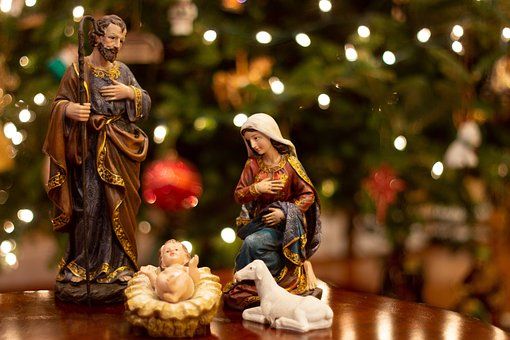China comprised 89.7% of total global Christmas goods exports in 2021, at $9.505 billion, according to data from China’s General Administration of Customs.
These products comprise Christmas party goods and exclude electric candles and garlands, natural Christmas trees and their stands.
While Christmas in Western Christianity falls on December 25, in Eastern Christianity it falls on January 6.
In fact, China broke records in its international sales of Christmas items in 2021, up 56% year-on-year, following the decline due to the Covid-19 pandemic.
Some of the rest of the world’s exports of these goods in 2021 were made from the Netherlands ($234 million), India ($97 million), Germany ($74 million) and Poland ($69 million).
It is not historically established that Jesus was born on December 25. In the Gospels of Matthew and Luke, which provide descriptions of the Nativity, neither the day nor the month, let alone the year, are ever mentioned.
However, the Italian media Palermomania reports that Jesus was born during the reign of Caesar Augustus and that the celebration of the Christian feast of the Nativity of Jesus on December 25 became widespread around the year 300.
Scholars believe that this date was chosen by the Church to replace the pagan worship of the Feast of Fire and the Sun and the deity of light Mithras, since it should not be forgotten that the winter solstice, the shortest night of the year, the closing of a solar year, falls on these days. It is here that popular, pagan and Christian traditions converge.
Christmas goods
China exported for the first time more than US$2 billion of Christmas items annually in 2011, when it reached US$2.31 billion.
Of its total external sales of those products in 2021, China shipped to the United States 57.5%, followed by the United Kingdom (6.7%), Canada (4.3%), the Netherlands (4.2%), Germany (2.5%), Italy (2.4%) and Mexico (1.7 percent).
Palermomania narrates that, in ancient Rome, the Saturnalia was celebrated from December 17 to 24 in honor of the god Saturn, a period of peace and tranquility in which the exchange of gifts and sumptuous banquets were very common. By the will of Emperor Aurelian, from the year 274 December 25 was consecrated to the feast of the Sun God.
Christmas is probably the most significant example of how a pagan tradition was absorbed by Christianity and acquired a new meaning.

